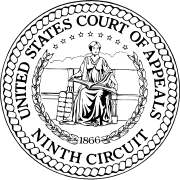| Scott v. Ross | |
|---|---|
 | |
| Court | United States Court of Appeals for the Ninth Circuit |
| Full case name | Jason Scott v. Rick Ross, aka Rickey Allen Ross; Mark Workman; Charles Simpson, and Cult Awareness Network, a California Non-Profit Corp. |
| Decided | September 1995 (jury verdict) April 8, 1998 (Court of Appeals decision) |
| Citation | 140 F.3d 1275 (9th Cir. 1998) |
| Case history | |
| Prior action | Jury verdict in favor of plaintiff |
| Subsequent actions | Rehearing En Banc denied, August 26, 1998, 151 F.3d 1247. Certiorari denied March 22, 1999, 526 U.S. 1033. |
| Court membership | |
| Judges sitting | Mary M. Schroeder, Robert Beezer, & William Schwarzer |
| Case opinions | |
| Majority: Beezer Dissent: Schwarzer | |
The Jason Scott case was a United States civil suit, brought against deprogrammer Rick Ross, two of his associates, and the Cult Awareness Network (CAN), for the abduction and failed deprogramming of Jason Scott, a member of the United Pentecostal Church International. Scott was eighteen years old at the time of the abduction and thus legally an adult. CAN was a co-defendant because a CAN contact person had referred Scott's mother to Rick Ross. In the trial, Jason Scott was represented by Kendrick Moxon, a prominent Scientologist attorney.
The nine-member jury unanimously held the defendants liable for conspiracy to deprive Scott of his civil rights and religious liberties. In addition, the jury held that Ross and his associates (but not CAN) "intentionally or recklessly acted in a way so outrageous in character and so extreme in degree as to go beyond all possible bounds of decency and to be regarded as atrocious and utterly intolerable in a civilized community." The case resulted in an award of $875,000 in compensatory damages and punitive damages in the amount of $1,000,000 against CAN, $2,500,000 against Ross, and $250,000 against each of Ross's two associates.
The case bankrupted the Cult Awareness Network, and its name, phone number, records and files were obtained by Scientologists.[1][2]